
A panelist discusses how even very small amounts of dystrophin (as low as 1%) may slow disease progression in skeletal muscles, although the impact on cardiac and respiratory function remains less clear.

A panelist discusses how even very small amounts of dystrophin (as low as 1%) may slow disease progression in skeletal muscles, although the impact on cardiac and respiratory function remains less clear.
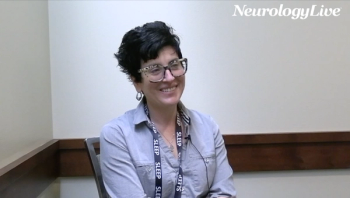
The neuropathologist at Mayo Clinic Florida discussed her presentation from SLEEP 2025, outlining how early tau accumulation in wake-promoting brain regions contributes to sleep disturbances before Alzheimer disease symptoms arise. [WATCH TIME: 3 minutes]

A panelist discusses how DMD is caused genetically through mutations in the dystrophin gene, with approximately one-third of cases arising from spontaneous new mutations rather than inherited from carrier parents.
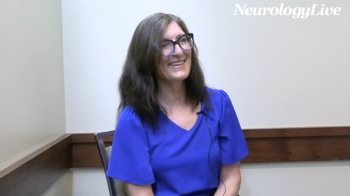
The professor of psychology at the University of Tulsa provided insight on how her team adapted CBT for children with nightmares using a learning-theory approach that targets the fear-avoidance cycle. [WATCH TIME: 5 minutes]

The director of sleep health at Flinders University explained how new mechanistic insights are enabling targeted pharmacotherapy and trait-based treatment for obstructive sleep apnea. [WATCH TIME: 3 minutes]

A patient and neurologist discussed personal and professional perspectives on treatment initiation, ongoing research, and patient advocacy in multiple sclerosis. [WATCH TIME: 5 minutes]

A patient and neurologist discussed the importance of individualized treatment strategies and the role of shared decision-making in managing multiple sclerosis. [WATCH TIME: 5 minutes]
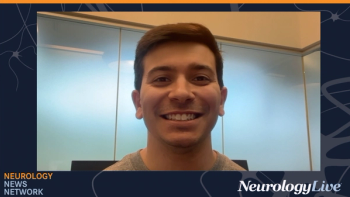
Neurology News Network. for the week ending June 7, 2025. [WATCH TIME: 4 minutes]

A patient living with MS and MS clinical expert reflected on the varied and often-misdiagnosed early symptoms that can signal the onset of the autoimmune disease. [WATCH TIME: 6 minutes]

A panelist discusses how dual orexin receptor antagonists (DORAs), particularly daridorexant, are poised to become a first-line treatment for chronic insomnia, especially for elderly patients, due to their safety, tolerability, and lack of withdrawal symptoms, while highlighting the importance of patient education and regular follow-up for optimal results.

A panelist discusses how dual orexin receptor antagonists (DORAs) are ideal for patients with chronic insomnia who require long-term sleep support, emphasizing their safety, tolerability, and effectiveness, while cautioning against use in patients with narcolepsy, parasomnia history, or severe kidney or liver disease.

A panelist discusses how dual orexin receptor antagonists (DORAs) are considered a first-line treatment for chronic insomnia, particularly for sleep maintenance issues, due to their superior tolerability, lack of withdrawal symptoms, and positive impact on daytime functioning.

The executive director of The Sumaira Foundation discussed a newly funded international trial assessing both approved and off-label NMOSD therapies to better inform treatment decisions and patient care. [WATCH TIME: 2 minutes]

A patient living with MS and MS clinical expert reflected on the varied and often-misdiagnosed early symptoms that can signal the onset of the autoimmune disease. [WATCH TIME: 6 minutes]
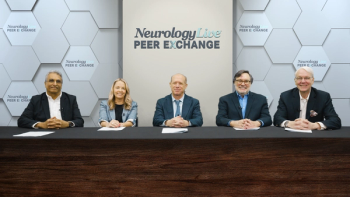
Panelists discuss how clinical nurse educators serve as vital partners in continuous subcutaneous apomorphine infusion management, providing patient education, troubleshooting technical issues, and collaborating with physicians on dosing titrations to optimize Parkinson disease symptom control.

The director of the John A. Schafer, MD Multiple Sclerosis Achievement Center at Dignity Health highlighted the significant impact of loneliness in individuals with multiple sclerosis. [WATCH TIME: 6 minutes]

Panelists discuss how comprehensive education and training resources are essential for clinicians, patients, and caregivers to successfully implement continuous subcutaneous infusion systems in Parkinson disease management.
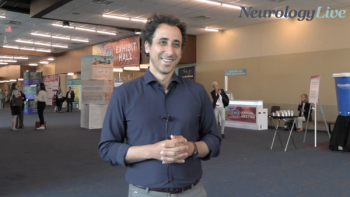
The assistant professor of neurology at the University of California, San Francisco discussed current advancements and ongoing challenges in identifying biomarkers to accurately monitor remyelination in MS clinical trials. [WATCH TIME: 5 minutes]

A panelist discusses how steroid use in DMD patients provides significant benefits in delaying disease progression, particularly loss of ambulation, despite potential side effects including mood disorders, bone weakness, and weight gain.

A panelist discusses how a 13-year-old DMD patient with exon 51 mutation who has been on prednisone since diagnosis is transitioning to wheelchair use while maintaining upper limb function.

The professor of neurology at the Miami Miller School of Medicine detailed the clinical potential of Cognivue’s Amyloid Risk Measure (CARM) for identifying individuals with cognitive impairment likely related to amyloid pathology. [WATCH TIME: 5 minutes]

The assistant professor of neurology at Mayo Clinic College of Medicine and Science outlined a case of myelin oligodendrocyte glycoprotein antibody-associated disease from diagnosis to long-term management. [WATCH TIME: 5 minutes]

The assistant professor in the Department of Neuroscience at Université de Montréal discussed key clinical factors influencing DMT selection in patients newly diagnosed with multiple sclerosis. [WATCH TIME: 5 minutes]

The professor of medicine and clinical translational science at the University of Pittsburgh provided commentary on the mechanism and clinical value of AD109, a novel combination therapy for OSA, following positive phase 3 SynAIRgy trial results. [WATCH TIME: 7 minutes]

The professor of pediatrics in neurology at the University of Toronto discussed differences in disease course, treatment strategy, and trial challenges of MOG-associated disorders in pediatric versus adult patients. [WATCH TIME: 5 minutes]
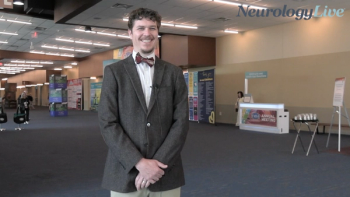
The assistant professor of neurology at Barrow Neurological Institute talked about the lack of public awareness for hypertension among individuals with MS despite many meeting diagnostic criteria. [WATCH TIME: 6 minutes]

The associate professor of medicine at the Cleveland Clinic Lerner College of Medicine highlighted the importance of early, multidisciplinary intervention for patients with multiple sclerosis. [WATCH TIME: 3 minutes]

Neurology News Network. for the week ending May 31, 2025. [WATCH TIME: 4 minutes]

Host Jeffrey Wilken, PhD, chats with Riley Bove, MD, about the third day of the 2025 CMSC Annual Meeting in Phoenix, Arizona.
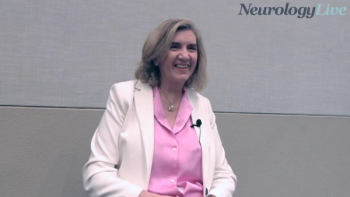
The vice chair of neurology at the Hospital Clínico San Carlos in Madrid highlighted the growing importance of detecting and managing progression in multiple sclerosis, particularly PIRA. [WATCH TIME: 6 minutes]